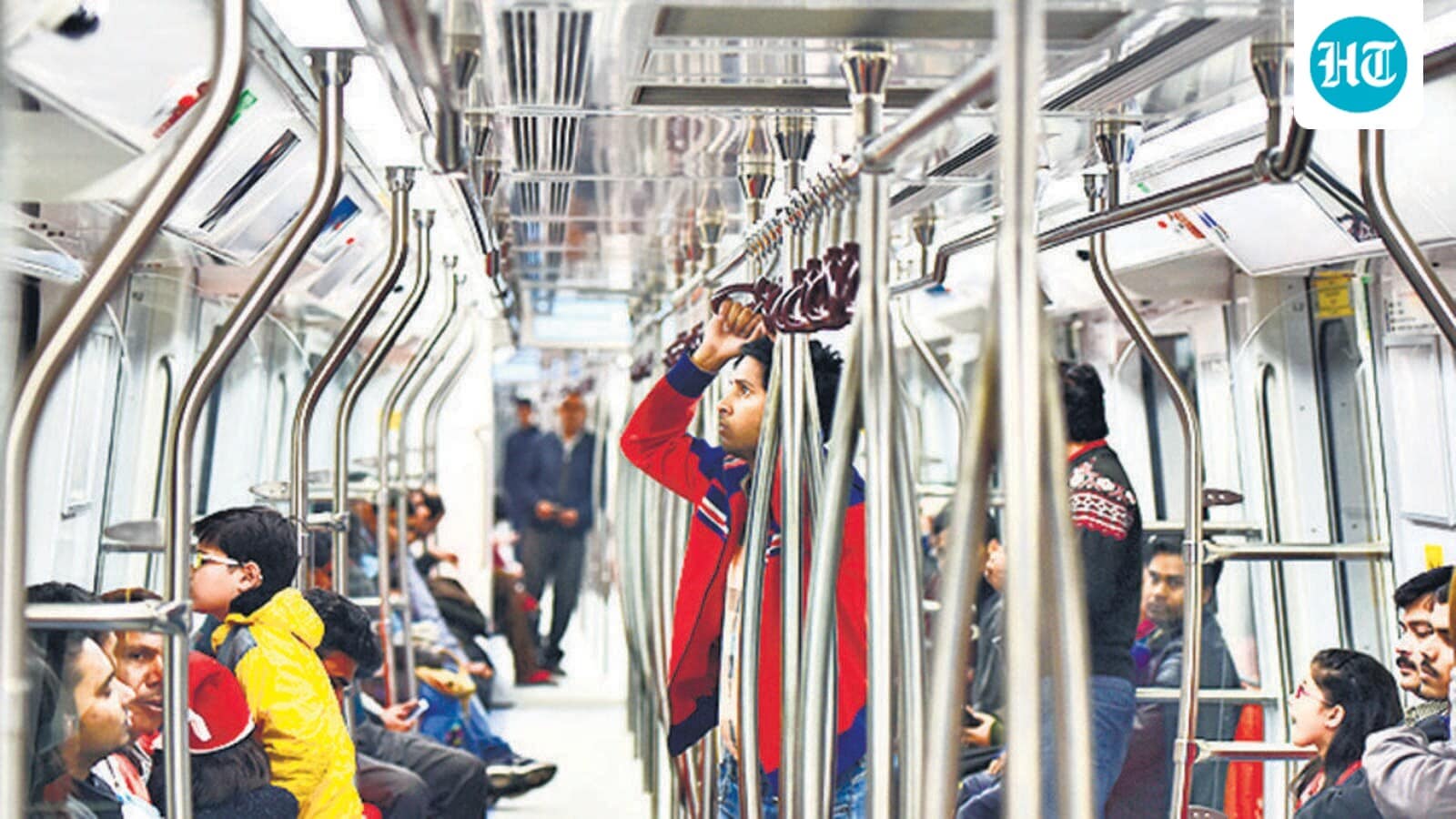Business
DMRC Implements Fines for Filming on Delhi Metro Network

The Delhi Metro Rail Corporation (DMRC) has initiated a crackdown on filming within its network, introducing fines for commuters who shoot videos or create social media content in metro stations and coaches. This effort began on September 14, 2023, with a plan to cover the entire network by the end of this week.
Officials have stated that in-train announcements now warn passengers against recording reels, dance clips, or any other type of social media content. The new announcements, delivered in both Hindi and English, align with existing reminders that discourage behaviors such as sitting on floors or eating inside coaches. The message is clear: “Filming reels, dance videos or any other such activities are strictly prohibited.”
While the Metro Railways Act, 2002 does not explicitly address filming reels, DMRC officials note that violators may face fines under provisions related to “creating a nuisance” within stations or coaches. Anuj Dayal, the principal executive director of corporate communications at DMRC, emphasized that this measure aims to ensure a comfortable travel environment for all passengers.
Response to Growing Social Media Trends
The decision follows a noticeable increase in passengers using the metro as a backdrop for viral social media content. Incidents of commuters dancing, lip-syncing, or performing stunts have sparked discomfort among other travelers. For instance, a video that gained attention in April featured a man drinking alcohol with a boiled egg inside a coach, while another clip showed a physical altercation between two passengers.
In an effort to address these issues, DMRC has tasked its flying squads—whose primary role involves monitoring women’s coaches—to also keep an eye on individuals creating potentially objectionable content. Despite these measures, the trend of viral videos continues, highlighting the challenges of enforcing such regulations. Regular passengers have voiced their concerns, stating that the issue extends beyond online trends to include overall comfort and safety during their journeys.
Ashish Kumar, a 22-year-old student who commutes daily, remarked, “People know if they shoot a video inside the Delhi Metro, it will not only catch eyeballs inside the coach, but on social media too. But loud music or dancing is not comfortable for any passenger.” His friend, Alka Singh, 21, echoed this sentiment, adding, “The metro is for travel, not for content creation.”
Initiatives for a Comfortable Travel Experience
In addition to the announcement campaign, DMRC has launched a parallel social media initiative urging passengers to refrain from playing loud music on their phones. The objective of these initiatives is to cultivate a more pleasant travel experience for commuters.
As the DMRC takes these steps, it reflects a broader recognition of the need to maintain decorum in public transportation systems. With the rise of social media, the balance between personal expression and public comfort remains a pertinent challenge. The DMRC’s efforts to curb filming activities within the metro highlights the importance of safeguarding the traveling experience for all passengers.
-

 World5 months ago
World5 months agoSBI Announces QIP Floor Price at ₹811.05 Per Share
-

 Lifestyle5 months ago
Lifestyle5 months agoCept Unveils ₹3.1 Crore Urban Mobility Plan for Sustainable Growth
-

 Science4 months ago
Science4 months agoNew Blood Group Discovered in South Indian Woman at Rotary Centre
-

 World5 months ago
World5 months agoTorrential Rains Cause Flash Flooding in New York and New Jersey
-

 Top Stories5 months ago
Top Stories5 months agoKonkani Cultural Organisation to Host Pearl Jubilee in Abu Dhabi
-

 Sports4 months ago
Sports4 months agoBroad Advocates for Bowling Change Ahead of Final Test Against India
-

 Science5 months ago
Science5 months agoNothing Headphone 1 Review: A Bold Contender in Audio Design
-

 Top Stories5 months ago
Top Stories5 months agoAir India Crash Investigation Highlights Boeing Fuel Switch Concerns
-

 Business5 months ago
Business5 months agoIndian Stock Market Rebounds: Sensex and Nifty Rise After Four-Day Decline
-

 Sports4 months ago
Sports4 months agoCristian Totti Retires at 19: Pressure of Fame Takes Toll
-

 Politics5 months ago
Politics5 months agoAbandoned Doberman Finds New Home After Journey to Prague
-

 Top Stories5 months ago
Top Stories5 months agoPatna Bank Manager Abhishek Varun Found Dead in Well









